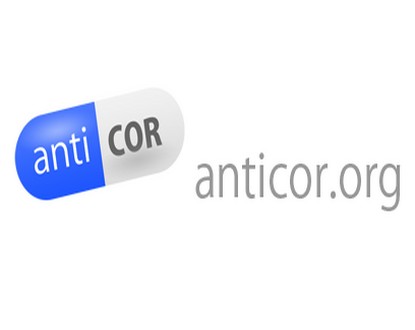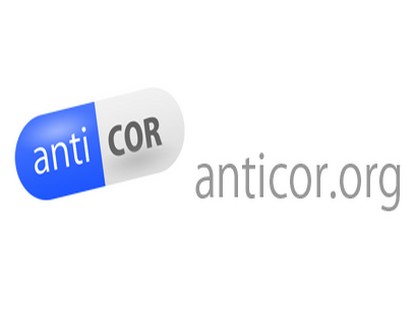Anticor (national association for fighting corruption, whose honorary president is former judge Éric Halphen) has developed an ethical charter for local authorities. The ambition of this document is to establish new practices to rehabilitate politics.
 It is composed of 11 points, classified into 3 parts: the commitments of elected officials, local democracy and its control, public finance management.
It is composed of 11 points, classified into 3 parts: the commitments of elected officials, local democracy and its control, public finance management.
Séverine Tessier, the national spokesperson for Anticor, and Jean-Christophe Picard, the head of Anticor 06, will announce, on Saturday, March 5, 2011, at 11 am, in front of the “Jean-François Knecht” school, 84 boulevard Henri Sappia, in Nice, the list of candidates who have committed to applying the provisions it contains.
Nice Premium offers you the opportunity to discover the contents of this charter and invites you to join us on March 5 to learn which candidates in the cantonal elections have actually approved it.
ETHICAL CHARTER FOR LOCAL AUTHORITIES
Preamble
The signing moral or physical person commits to applying and ensuring compliance with the proposals indicated in this charter that are compatible with current laws. For other proposals, they commit resolutely to striving to accomplish them by changing the law.
This charter is composed of 11 points classified into 3 parts:
- The commitments of elected officials
- Local democracy and its control
- Public finance management
The signatories can publicly acknowledge their signing of this Charter in their communications.
This charter is addressed to the candidates and elected officials of local authorities.
1) Non-cumulation and limitation of mandates and executive functions
The accumulation of mandates and executive functions (for instance in water syndicates, household waste, etc.), both in time and space, is a factor that promotes clientelism and generates conflicts of interest.
To best serve the general interest, an elected official must fully dedicate themselves to their mandate and to fulfilling their electoral commitments. This is a decisive element for restoring citizens’ trust in those who represent them and for avoiding collusion between political, economic, financial, and media powers.
The limitation of mandates over time means prohibiting more than one renewal of the same mandate. It is also the guarantee of the essential renewal of the political class. The spatial limitation means prohibiting the holding of an executive mandate and an executive function or another executive mandate simultaneously.
The elected official having only one executive mandate, the so-called trimming rule will automatically disappear. It should be noted that today, due to the capping of allowances received by an elected official with multiple roles, the excess received is distributed at their discretion to affiliates, thereby multiplying the risks of dependency, collusion, and corruption.
Concurrently, Anticor considers it indispensable to establish a true status for elected officials, which should be a mandate contract including rights (notably electoral leave for the return of private sector employees to their company) and obligations.
2) Mandatory training of elected officials in good management practices
The training of elected officials is currently a right. It must become an obligation, particularly for new elected officials at the start of their mandate, whether they are in charge of delegations or in opposition. A simple activist or citizen who becomes an elected official overnight must quickly be able to exercise sound management of public funds.
In return for this obligation, the training should take place in the elected’s own community, or failing that, extraordinarily in their department.
This training should be a real tool to fight against abuses (waste, misappropriation, corruption, favoritism…), particularly in the areas of budget preparation and control, public procurement, and the execution of public service delegations… It is also a tool for equality among all officials, regardless of their personal experience, for the benefit of citizens and taxpayers.
3) Establishment of a territorial ethics authority
Territorial assemblies will establish an independent ethics committee at each renewal, responsible for preventing conflicts of interest within this assembly and for resolving any ethical issues that may arise during the mandate.
This committee, which may not include the Mayor or the President of the deliberating Council, can be approached by any citizen with any ethical issue concerning elected officials of the territorial assembly or their decisions. Its motivated opinions will be communicated to the territorial assembly at the following Council.
To resolve ethical disputes concerning one of its members, this committee will have the power to place on the assembly’s agenda a resolution to be voted on by secret ballot.
Recipient of the private and associative interest declarations of each elected official at the beginning of the mandate, the committee will indicate before each Council if certain elected officials should abstain from participating in the debate and vote on certain resolutions.
Its opinions may notably help to avoid a number of requests to the Administrative Court, referrals to the Commission for Access to Administrative Documents, and prefectural appeals, by better enlightening citizens on their requests and publicly reminding elected officials of some of their duties.
4) Fighting conflicts of interest and fostering transparency among officials
To avoid the risks of influence peddling, candidates commit to declaring in their electoral communication any potential links with private for-profit interest groups and associations. This is clearly a way to make this information known to voters, candidates’ running mates, and, in the event of election, their future administrative partners.
For better transparency, the mandatory declaration of assets and income of candidates and elected officials, both at the beginning and end of each mandate, must be accompanied by an annual update. Similarly, the end of mandate declaration should be public four months before the end of the term, to allow voters to judge it in time.
LOCAL DEMOCRACY AND ITS CONTROL
5) Recognition of the place of opposition and affirmation of its rights
The recognition and affirmation of the counter-power rights of the opposition: control of the majority’s management, right to expression, working conditions… must result in a radical change in practices often in place today.
At the start of the term, precise proposals will be made by the majority. In particular, the presidency of the procurement commission should be entrusted to the opposition. The latter should be represented in all commissions, including in the commissions for the allocation of social housing, daycare spots, and in the grants allocation commission (to be created if necessary). It should also be represented in the Boards of Directors and Steering Committees of any organization functioning mainly thanks to territorial finances.
6) Control by citizens of collective management
In a decentralized Republic, citizens must be true actors of local democracy. We recommend a citizen-officials partnership to evaluate public policies, both before and after decisions are made.
It involves expanding and strengthening the role of public service consultative commissions by giving them deliberative power. They would thus become true arbitration and evaluation commissions. These commissions could also be entrusted with controlling subsidized associations. In these commissions, qualified individuals will be appointed in a pluralistic manner and not solely by the President of the territorial collectivity. These commissions will have the authority to demand an external audit from the collectivity.
Regarding the control of the implementation of public service delegations, citizens should be involved in monitoring cost and price developments in relation to the quality of the service provided. Ratios of costs for managing water, waste, etc., will be published annually.
The minutes of any commission meeting, as well as the allocations of subsidies and economic aid, will be consultable on the collectivity’s website (or posted in the absence of a site), respecting legal confidentiality obligations for tenders and urban planning.
The reports of the Regional Chambers of Accounts on the collective’s management, just like the Local Urban Plans, will be widely communicated on all collectivity supports. Communication expenses will be clearly published each year, with a transparent reminder of previous years’ expenses. An annual activity report must be made known to all citizens of the collectivity.
Furthermore, citizens must have easy access to all non-confidential files without dilatory maneuvering.
Neighborhood advisors can no longer be appointed merely by the Mayor and his majority: they will either be elected or appointed in a pluralistic manner.
Experience shows that implementing citizen consultations and citizen initiative referendums must respect too constraining rules to easily succeed. The signatories of this charter are committed to facilitating this type of direct democratic consultation and to unreservedly accepting the consequences.
7) Recognition of the right to act in the interest of each elected official on behalf of their collectivity
Too many reports of anomalies by elected officials are quickly dismissed without any investigation, on the pretext that these officials “are not personally harmed”. The signatories of this charter request a change in the law allowing the recognition of the interest to act of each elected official, representing the citizens, for any problem concerning the management of their collectivity: in Court, at the Regional Chambers of Accounts, at the competition control bodies…
8) Recognition of the right to alert for all territorial employees
Criminal law obliges civil servants and citizens to report any malfeasance they are aware of, but there is no protection for employees of local authorities, ensuring the serene exercise of this right in their professional sphere. Civil servants have the duty to refuse to execute an order that is manifestly illegal, but the pressures are such that few dare to do so. We therefore propose an extension of the right to alert to employees of local authorities, as already provided by the labor code in matters of security, this right including protection against dismissal in case of ethical alert.
PUBLIC FINANCE MANAGEMENT
9) Transparent and rigorous management of public funds
Elected officials must serve and not be served. The management of public money must be done in an exemplary manner, in the general interest and not for partisan or personal purposes.
Annual budgets must be understandable to all citizens, using tools that include simple, reliable, and comparative management ratios. Indeed, the various budget line items must easily be comparable to those of similarly sized and environmented communities, as well as to those of previous years.
The entire budget and annual administrative account must be accessible online, so that citizens who wish to can review it.
10) Financial crimes of elected officials
The legislator has provided for the possibility of ineligibility up to 10 years for an elected official convicted of corruption, without automaticity of the sentence. In practice, the judge remains sovereign and sentences rarely exceed one year. Besides the fact that sentences are most often pardonable, it is abnormal and shocking that an elected official who has misappropriated the taxpayer’s money can present themselves for election again, while a civil servant or accountant in a company would be permanently dismissed. The same applies to certain professions that require a clean criminal record.
The signatories of this charter are in favor of the establishment of a new eligibility clause, which is the absence of any conviction for crimes relating to public money management, even in the case of an amnesty for that conviction. Such a measure is the best deterrent penalty against corruption.
Any elected official convicted of such an offense will be removed from their executive functions and will see their delegations withdrawn, temporarily after a conviction in the first instance, and permanently if the conviction becomes final. This principle is inspired by the republican morality that wants every elected official to be a model of exemplary behavior for all citizens.
11) Strict regulation of lobbying
The numerous examples of abuses due to lobbying have demonstrated the need to strictly regulate it. Not only must transparency be the rule for solicitation actions made by companies, but it is necessary to limit the use to expenses related to their areas of operation.
If elected officials can hear, audition, and meet interest groups, it is provided that this is done collegially and with a prior public announcement of these meetings, to preserve equity among different interest groups and the transparency owed to citizens.
Any elected official will prohibit themselves from exercising interested influence practices within their collectivity. The only gifts they may accept will be presentation samples from companies. Each elected official must commit to revealing any attempt of private influence practice from companies, groups, societies… they might be aware of, to preserve the ethics of public markets.
Large companies involved in corruption scandals and illegal political party funding still benefit from public contracts today. To be deterrent in pursuing corrupt practices, it should be forbidden for any company that has paid bribes or engaged in illicit agreements with other companies to obtain a contract to tender for public markets.
The signatories of this charter commit to not retaining for their public contracts a company convicted of corruption.



